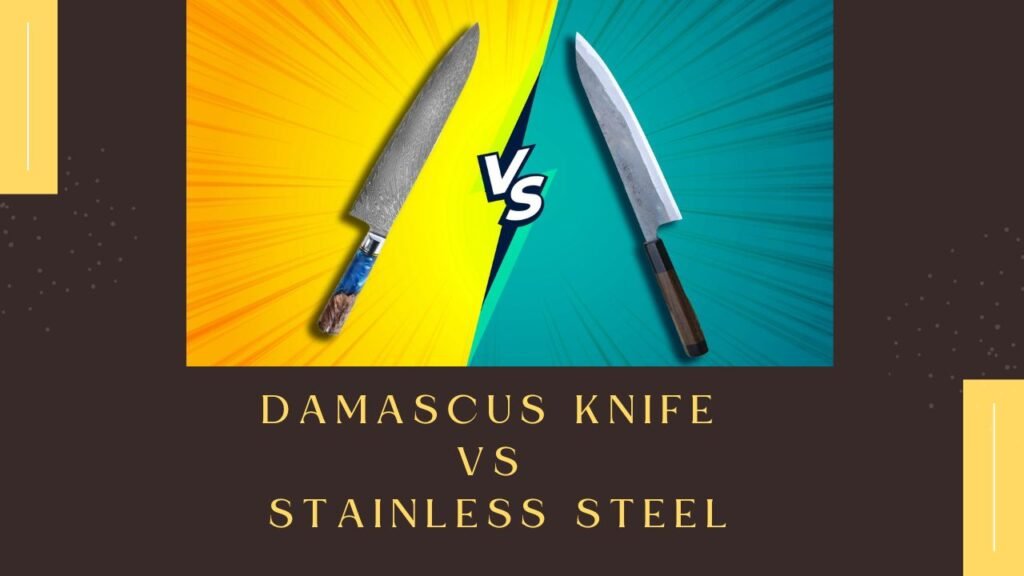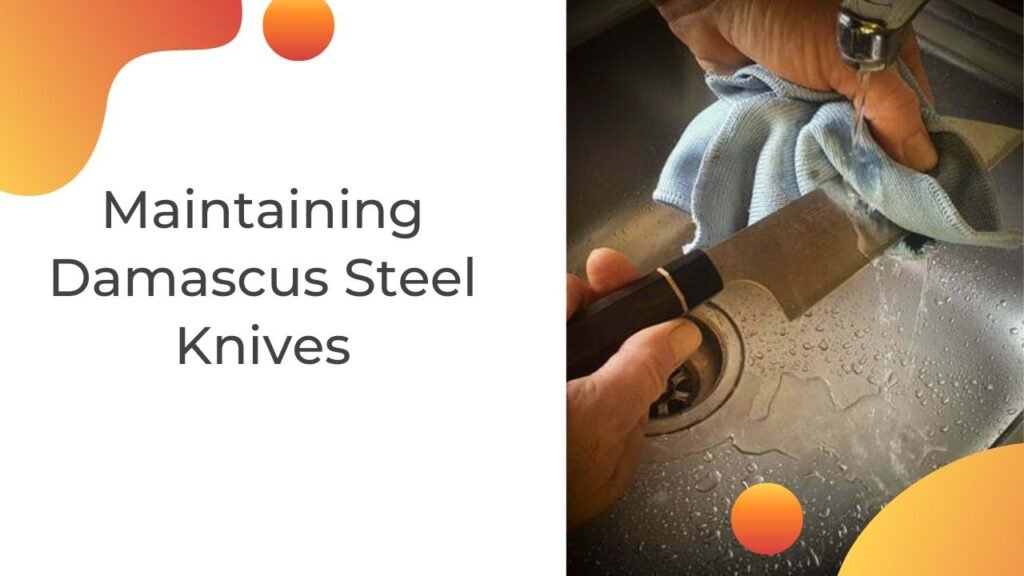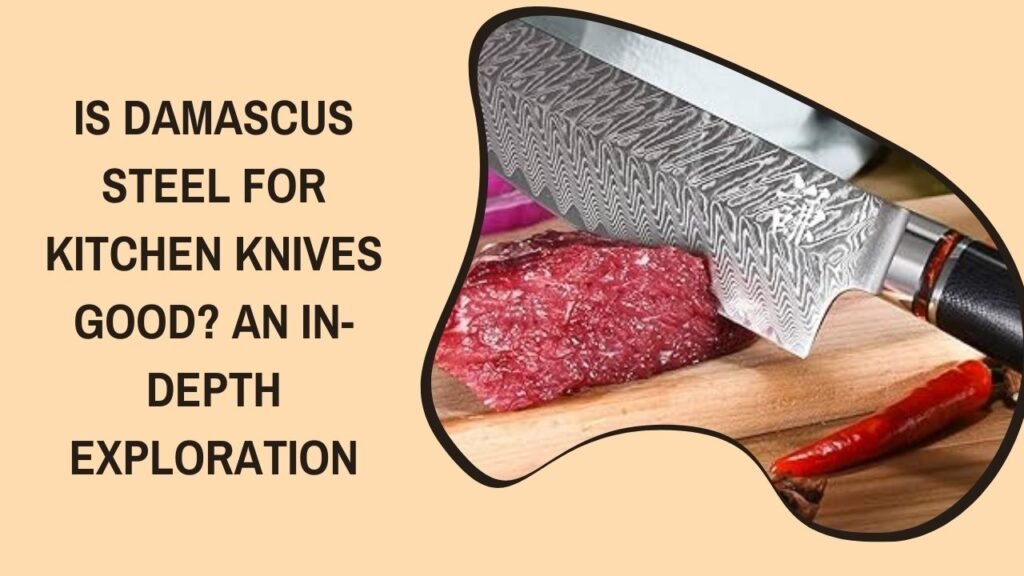Ever walked into a kitchen and been captivated by the shimmering, wavy patterns on a set of kitchen knives? Is Damascus steel for kitchen knives good is a question that often crosses the minds of both amateur cooks and professional chefs alike. Damascus steel knives are renowned not only for their stunning aesthetics but also for their impressive performance. But do they truly live up to the hype? Let’s slice through the layers and uncover the truth behind Damascus steel kitchen knives.
What is Damascus Steel?
Before we delve into whether Damascus steel is a good choice for kitchen knives, it’s essential to understand what Damascus steel actually is.
History of Damascus Steel
Damascus steel has a storied history that dates back centuries. Originating in the Near East, particularly in regions like Syria and India, traditional Damascus steel was famed for its strength, resilience, and distinctive water-like patterns. These historical blades were often used in swords and other weaponry, prized by warriors for their superior performance in battle.
Modern Damascus Steel Manufacturing
Today, Damascus steel has been revitalized and adapted for modern applications, including kitchen knives. Modern Damascus steel is created by layering different types of steel and forging them together through a process called pattern welding. This technique not only enhances the blade’s strength and flexibility but also produces the characteristic wavy or ladder-like patterns that make Damascus knives so visually appealing.
Key Features of Damascus Steel Knives
Understanding the features that make Damascus steel knives stand out is crucial in answering is Damascus steel for kitchen knives good.
Aesthetics
One of the most striking aspects of Damascus steel knives is their aesthetic appeal. The intricate patterns formed by the layered steel give each knife a unique appearance, making them a popular choice for both functional and decorative purposes in the kitchen.
Durability and Strength
Damascus steel is celebrated for its durability and strength. The layering process creates a blade that is both hard and flexible, reducing the likelihood of chipping or breaking during heavy use. This makes Damascus knives particularly suitable for tasks that require precision and force.
Edge Retention and Sharpness
When it comes to edge retention and sharpness, Damascus steel knives perform exceptionally well. The fine grain structure of the steel allows these knives to hold a sharp edge for extended periods, meaning you won’t have to sharpen them as frequently as other types of knives.
Maintenance Requirements
While Damascus steel knives are robust, they do require proper maintenance to preserve their quality. Regular honing and occasional professional sharpening are recommended to maintain their edge. Additionally, because they are often made with high-carbon steel, they can be susceptible to rust if not properly cared for.
Pros and Cons of Damascus Steel for Kitchen Knives
Like any material, Damascus steel has its strengths and weaknesses. Let’s weigh the pros and cons to determine if it’s the right choice for your kitchen.
Pros
- Superior Aesthetics: The unique patterns make each knife a piece of art.
- Excellent Durability: Resistant to chipping and breaking.
- Long-Lasting Sharpness: Holds an edge well, reducing the need for frequent sharpening.
- Versatile Performance: Suitable for a wide range of kitchen tasks, from chopping vegetables to slicing meat.
Cons
- Higher Cost: Generally more expensive than standard stainless steel knives.
- Maintenance: Requires diligent care to prevent rust and maintain sharpness.
- Weight: Some Damascus knives can be heavier, which might be a drawback for those who prefer lighter blades.
- Potential for Tarnishing: Without proper care, the patterns can tarnish over time.

How Damascus Steel Knives Compare to Other Materials
To better understand the value of Damascus steel, it’s helpful to compare it to other common knife materials.
Table 1: Comparison of Damascus Steel vs. Stainless Steel vs. High Carbon Steel
| Feature | Damascus Steel | Stainless Steel | High Carbon Steel |
|---|---|---|---|
| Aesthetics | Highly decorative patterns | Typically plain, shiny surfaces | Often plain, can develop patina |
| Durability | Very durable, resistant to chipping | Durable, but can chip under heavy use | Extremely durable, but prone to rust |
| Edge Retention | Excellent edge retention | Good edge retention, varies by grade | Superior edge retention, easy to sharpen |
| Maintenance | Requires regular maintenance to prevent rust | Low maintenance, resistant to rust | High maintenance to prevent rust |
| Cost | Generally more expensive | Varies widely, generally affordable options | Can be expensive, especially high-end brands |
| Weight | Heavier due to layered construction | Varies, generally lighter than Damascus | Often heavier, depending on construction |
Damascus steel stands out for its combination of beauty and performance, offering a unique balance between the high maintenance of high carbon steel and the lower maintenance of stainless steel.
Price and Value
When considering is Damascus steel for kitchen knives good, the price-to-value ratio is a significant factor.
Damascus knives tend to be more expensive than their stainless or high carbon counterparts due to the intricate manufacturing process and the artistry involved. However, their durability and edge retention can make them a worthwhile investment for serious cooks and enthusiasts who value both performance and aesthetics.
Table 2: Price Range of Common Kitchen Knife Materials
| Knife Material | Price Range (USD) | Typical Use Cases |
|---|---|---|
| Damascus Steel | $100 – $1000+ | High-end kitchens, professional chefs |
| Stainless Steel | $20 – $300 | Everyday cooking, affordable kitchens |
| High Carbon Steel | $50 – $500 | Serious home cooks, culinary professionals |
As seen in the table, Damascus steel knives occupy the higher end of the price spectrum but offer unique benefits that can justify the cost for those who prioritize quality and design.
Personal Experiences and Opinions
Let me share a personal anecdote that might resonate with many kitchen enthusiasts.
I remember purchasing my first Damascus steel knife as a gift to myself. The moment I unwrapped it, the mesmerizing patterns caught my eye, and I couldn’t wait to put it to use. The knife felt substantial in my hand, providing a sense of control and precision that my previous stainless steel knives lacked. Over time, I found that it maintained its sharpness remarkably well, even with daily use. However, I did notice that I had to be more diligent with its maintenance, ensuring it was always dry and occasionally oiling it to prevent rust. Overall, the investment felt worthwhile for the enhanced cutting experience and the beauty it added to my kitchen.
Rhetorical Question
Have you ever considered how much the right knife can transform your cooking experience? A Damascus steel knife might just be the game-changer your kitchen needs.
Expert Opinions
To gain a more comprehensive understanding, let’s look at what experts say about Damascus steel kitchen knives.
According to Chef Marcus Samuelsson, a renowned chef and restaurateur, “Damascus steel knives offer a blend of beauty and functionality that’s hard to match. The layered construction not only provides strength but also allows for a sharper, more resilient edge. However, they do require proper maintenance to truly shine.”
Dr. Linda Thompson, a materials scientist specializing in metallurgy, adds, “The process of creating modern Damascus steel involves sophisticated techniques that enhance the blade’s performance characteristics. While the initial cost is higher, the longevity and performance of Damascus knives can make them a valuable investment for those who use their knives frequently.”
These expert insights highlight that while Damascus steel knives come with a higher price tag and maintenance requirements, their performance and aesthetic appeal can offer significant value to the right user.

Tips for Maintaining Damascus Steel Knives
To ensure your Damascus steel knives remain in top condition, follow these maintenance tips:
- Regular Honing: Use a honing steel to keep the blade’s edge aligned and sharp.
- Proper Cleaning: Hand wash your knives with mild soap and warm water immediately after use. Avoid soaking them.
- Dry Thoroughly: Always dry your knives completely to prevent rust and corrosion.
- Storage Solutions: Store your knives in a knife block, magnetic strip, or protective sheath to protect the blade and prevent accidents.
- Periodic Oiling: Occasionally apply a light coat of mineral oil to the blade to maintain its shine and prevent rust.
Frequently Asked Questions (FAQs)
1. Is Damascus steel better than stainless steel for kitchen knives?
Damascus steel offers superior aesthetics, excellent edge retention, and durability compared to many stainless steel knives. However, it requires more maintenance and comes at a higher price point. The choice depends on your priorities—whether you value visual appeal and performance over cost and ease of maintenance.
2. Can Damascus steel knives rust?
Yes, Damascus steel knives can rust if not properly maintained. It’s essential to keep them dry, clean, and occasionally oil the blades to prevent rust and corrosion.
3. How often should I sharpen my Damascus steel knife?
The frequency of sharpening depends on usage. Generally, Damascus steel knives hold their edge longer than standard knives, so you might need to sharpen them every few months with regular use. Honing can be done more frequently to maintain sharpness.
4. Are Damascus steel knives worth the investment?
If you value aesthetics, performance, and durability, and are willing to invest in proper maintenance, then Damascus steel knives can be a worthwhile investment. They offer a unique combination of beauty and functionality that many other knives don’t
5. How do I identify genuine Damascus steel knives?
Authentic Damascus steel knives feature distinct, wavy patterns on the blade, resulting from the layered forging process. To ensure authenticity:
- Check the Pattern: Genuine Damascus will have unique, intricate patterns that are consistent with traditional methods.
- Research the Manufacturer: Reputable brands provide detailed information about their Damascus steel production.
- Price Point: Authentic Damascus knives are usually more expensive due to the craftsmanship involved.
- Certification: Some knives come with certifications or guarantees of authenticity from the manufacturer.
6. Can I use a dishwasher for Damascus steel knives?
It’s not recommended to use a dishwasher for Damascus steel knives. The high heat and harsh detergents can damage the blade and handle, leading to rust and deterioration of the steel.
7. Do Damascus steel knives require special care when sharpening?
While you can sharpen Damascus steel knives like any other high-quality knife, it’s important to use the correct sharpening tools and techniques to preserve the blade’s integrity. Consider using a sharpening stone or professional sharpening service to maintain the optimal edge without compromising the pattern or structure.
8. What makes Damascus steel unique compared to other knife steels?
Damascus steel is unique due to its layered construction, which not only provides aesthetic patterns but also enhances the blade’s strength and flexibility. This combination results in a knife that is both beautiful and highly functional, with excellent edge retention and durability.
9. Can Damascus steel knives be used for all kitchen tasks?
Yes, Damascus steel knives are versatile and can handle a wide range of kitchen tasks, from chopping vegetables to slicing meat. Their sharpness and durability make them suitable for both delicate and heavy-duty cutting.
10. Where can I buy quality Damascus steel kitchen knives?
Quality Damascus steel knives can be purchased from reputable kitchenware stores, specialty knife retailers, and online platforms. Look for brands known for their craftsmanship and read reviews to ensure you’re getting an authentic and high-quality product.
Final Thoughts
Is Damascus steel for kitchen knives good? The answer is a resounding yes, especially for those who appreciate the blend of artistry and functionality. Damascus steel knives offer exceptional performance, durability, and unmatched beauty, making them a prized addition to any kitchen. However, they do come with a higher price tag and require diligent maintenance to keep them in pristine condition.
Rhetorical Question
Isn’t it worth investing in a knife that not only performs flawlessly but also adds a touch of elegance to your culinary workspace? If you’re passionate about cooking and value both form and function, Damascus steel knives might just be the perfect fit for you.
Frequently Asked Questions (FAQs)
1. Is Damascus steel better than stainless steel for kitchen knives?
Damascus steel offers superior aesthetics, excellent edge retention, and durability compared to many stainless steel knives. However, it requires more maintenance and comes at a higher price point. The choice depends on your priorities—whether you value visual appeal and performance over cost and ease of maintenance.
2. Can Damascus steel knives rust?
Yes, Damascus steel knives can rust if not properly maintained. It’s essential to keep them dry, clean, and occasionally oil the blades to prevent rust and corrosion.
3. How often should I sharpen my Damascus steel knife?
The frequency of sharpening depends on usage. Generally, Damascus steel knives hold their edge longer than standard knives, so you might need to sharpen them every few months with regular use. Honing can be done more frequently to maintain sharpness.
4. Are Damascus steel knives worth the investment?
If you value aesthetics, performance, and durability, and are willing to invest in proper maintenance, then Damascus steel knives can be a worthwhile investment. They offer a unique combination of beauty and functionality that many other knives don’t.
5. How do I identify genuine Damascus steel knives?
Authentic Damascus steel knives feature distinct, wavy patterns on the blade, resulting from the layered forging process. To ensure authenticity:
- Check the Pattern: Genuine Damascus will have unique, intricate patterns that are consistent with traditional methods.
- Research the Manufacturer: Reputable brands provide detailed information about their Damascus steel production.
- Price Point: Authentic Damascus knives are usually more expensive due to the craftsmanship involved.
- Certification: Some knives come with certifications or guarantees of authenticity from the manufacturer.
Choosing the right kitchen knife is pivotal for both efficiency and enjoyment in the kitchen. Is Damascus steel for kitchen knives good? Absolutely, if you’re looking for a knife that combines stunning visuals with top-tier performance. By understanding its benefits and maintenance requirements, you can make an informed decision that enhances your culinary experience.
Happy cooking and slicing!


